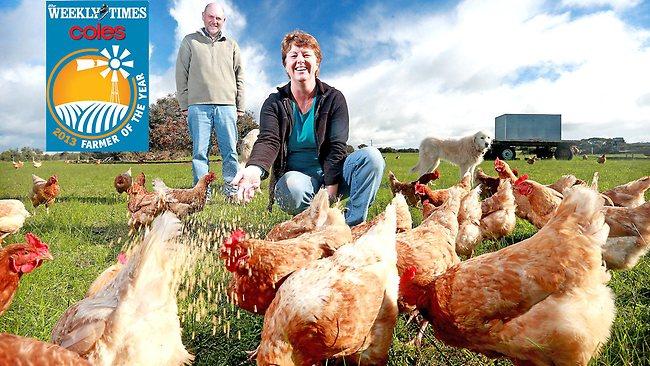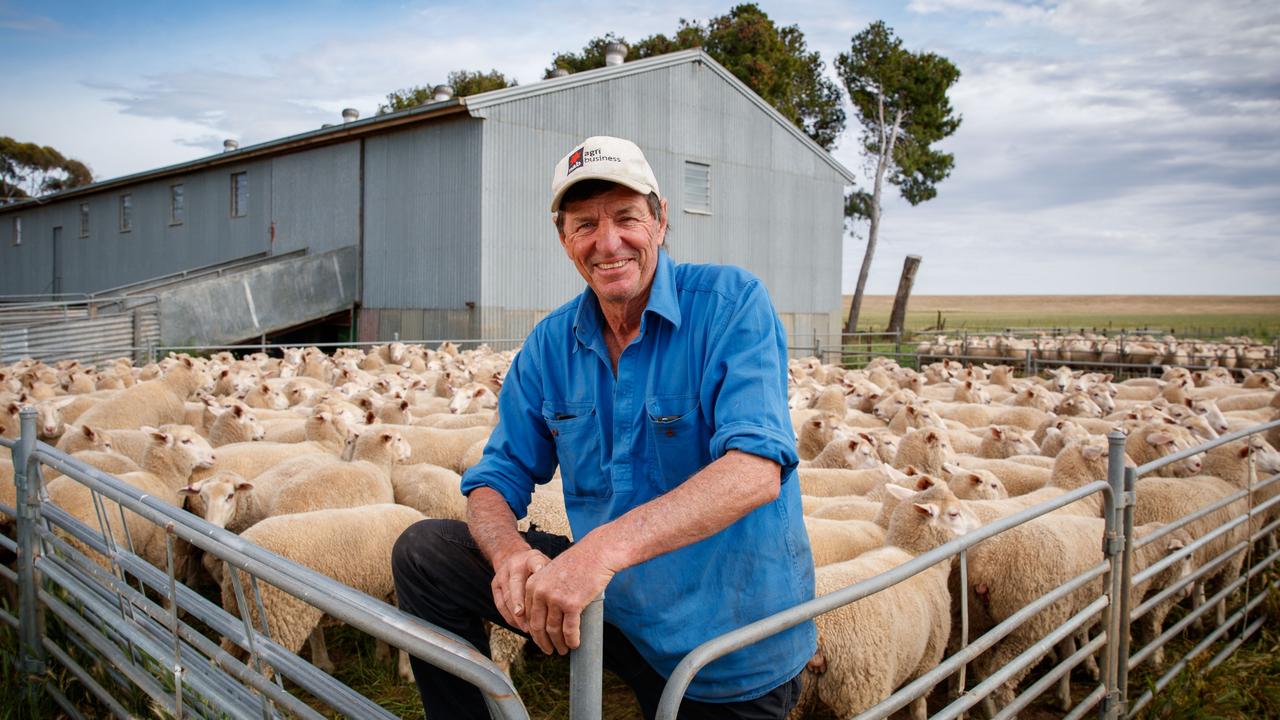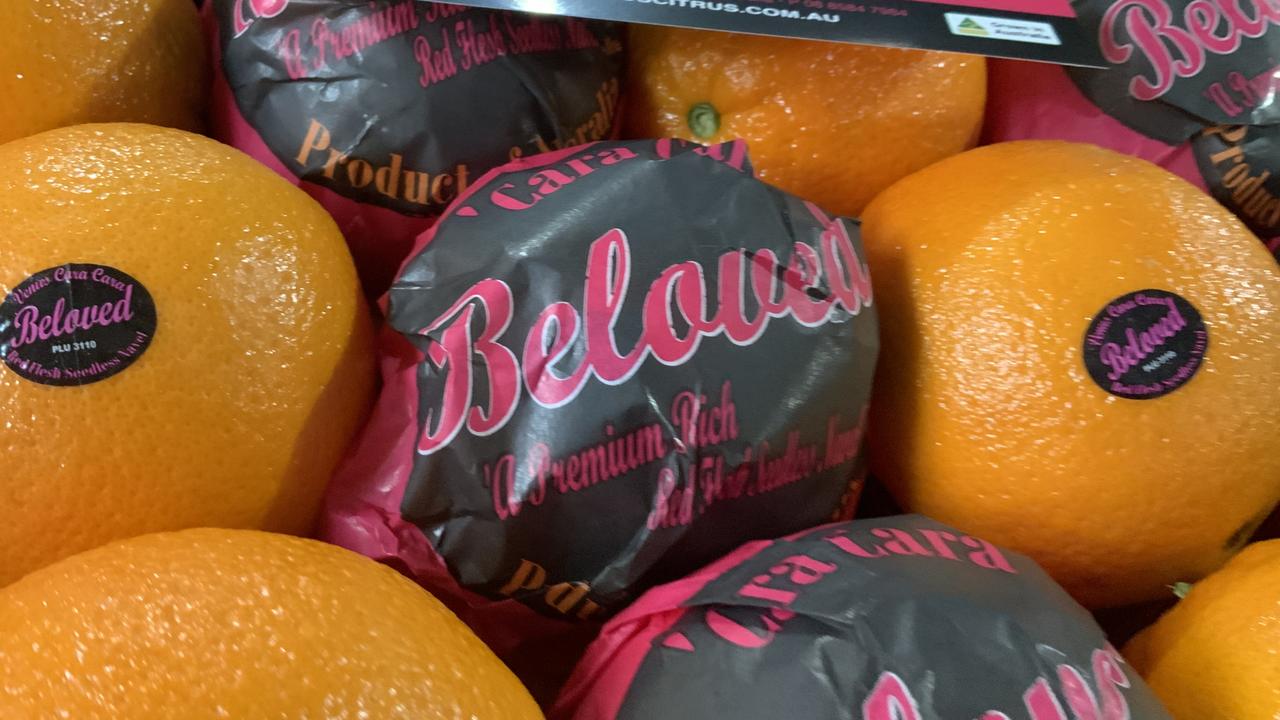Barrett's hen house is happy-go-clucky free-range on South Australia's Kangaroo Island
A SOUTH Australian couple have become free-range battlers, writes SARAH HUDSON

ON PAPER, Kathy and Graham Barrett are biodynamic, free-range egg farmers on South Australia's Kangaroo Island, with a large sideline in cropping, as well as Dorper sheep and Hereford cattle.
The reality, however, is a little more complex.
As busy as they are running their 570ha property and seven-day-a-week Katham Springs business, the couple - Kathy especially - work just as hard at lobbying, and hosting politicians, chefs and bureaucrats on the farm.
All in the name of promoting and educating on the contentious issue of free range.
"I've had people from the (South Australian) Department of Primary Industries who come here and say they didn't expect to see chooks running around like cattle and sheep," Kathy said.
"I've had Labor politicians, Liberals, Family First, Greens, foodies, even the Governor came to Kangaroo Island and visited one of the other egg farms."
Last year Kathy estimated she spent 1000 hours on the free-range issue.
Put simply, the Barretts, as well as their fellow Kangaroo Island egg producers and free-range farmers across South Australia and the nation, have banded together to urge state and federal governments to create a legal, enforceable definition of free range - 1500 hens per hectare or less.
Kathy said while the issue should be dealt with nationally, so far their work has paid off on a state level, with the South Australian Government agreeing to stickers on all cartons from next year from true free-range farmers.
"Big players see there's money to be made in free range, so they're labelling products free range when their densities are 10,000-20,000 hens/ha, some are as high as 40,000," she said.
"We just want them to call it something else, like barn yard.
"The consumer is being ripped off because they don't know what they are buying. The only way to guarantee it's free range is to buy organic.
"It's important not just for welfare issues, but also environmentally. Anything more than 1500/ha and the manure build-up on the ground is shocking. Disease outbreaks are more intensive."
Kathy said with the South Australian election due next year, her lobbying work would only get busier.
Yet she admitted none of the work helped their own business marketing.
"We are in a very different market to others, so we don't need to be involved in this. Being biodynamic and having such a low stocking rate already (125 hens/ha), we already have a market with a waiting list for more," said Kathy.
The Barretts break the mould in many ways when it comes to farming.
Graham, who grew up on Kangaroo Island and is a wool classer, started farming Merinos with Kathy more than 30 years ago.
For many years they farmed organically and then in the early 1990s, curious about reducing their inputs even further, they opted to go biodynamic.
"We thought we'd give it five years and if we didn't see any advantages it would be easy to go back," Kathy said.
"But after five years we'd seen the soil development and we didn't have any problems with disease and pests and we'd virtually eradicated the need for drenching. After that we knew we'd never go back to conventional farming."
With the biodynamic market on the rise and with the encouragement of industry insiders, the couple opted to grow barley for herbal tea in Japan, in addition to the Merinos.
When the Asian economy crashed, they found themselves with a crop only useful as feed.
"The biodynamic people said eggs were what consumers were wanting. But Graham hated chooks, he'd been attacked by them as a kid. We resisted for a while but the barley pushed us into it."
In 1999 they started with 300 laying hens and their Katham Springs biodynamic free-range egg business was born.
Now, with Graham "tolerating" the chooks, they have 4000 Hy-Line Brown layers, and have expanded to include their son and daughter-in-law's neighbouring property.
About 1000 replacements birds are flown in as day-old chicks from Victoria twice a year, in April and August, which maximises peak spring egg production.
Chicks are kept in a brooding shed until fully feathered at four weeks and then let out to roam.
At 12 weeks pullets are moved to the laying shed and they start to lay from about week 17.
Unlike commercial egg producers, who finish hens at 12 months, the Barretts keep hens until 30 months, before using them as compost.
On average, 70 per cent lay, producing up to 1500 dozen eggs a week during peak times, but there are large variations.
"If there's a lot of wind or a storm, or if it's too hot, egg production drops," Kathy said.
Hens are kept in four portable laying sheds that are moved twice a week, and when foraging outdoors are protected from wedge-tailed eagles and feral cats by Maremma dogs.
Kathy said in biodynamic rearing of chooks, the biggest difference to organics or commercial farming is in their feed, with as much grain as possible being produced on the farm - 100 per cent in a good year.
Graham is responsible for farming crops of wheat, barley, oats, beans and peas, with the occasional crop of mung beans ordered from Queensland.
"We are value-adding to our grain by putting it through the chooks. We're far better off selling eggs than selling the grain," she said.
Crops occasionally require rock phosphate, but for the most part rely on staple biodynamic preparations such as 500.
The Barretts farm 1500 Dorper sheep with the meat sold at conventional market because there is no certified biodynamic abattoir on Kangaroo Island; although they have future plans to market their own biodynamic meat.
To avoid monoculture farming, they have a herd of 20 Hereford-Simmental cattle, used as a "management tool to eat the pasture, and break down the worm resistance with the sheep".
Eggs are washed, candled (to find cracks or blemishes), graded, stamped and weighed before being freighted by ferry to more than 40 outlets around South Australia, including Foodland, with any excess sent to Victoria.
Kathy said demand for biodynamic eggs was so great they have a waiting list of outlets seeking their eggs.


